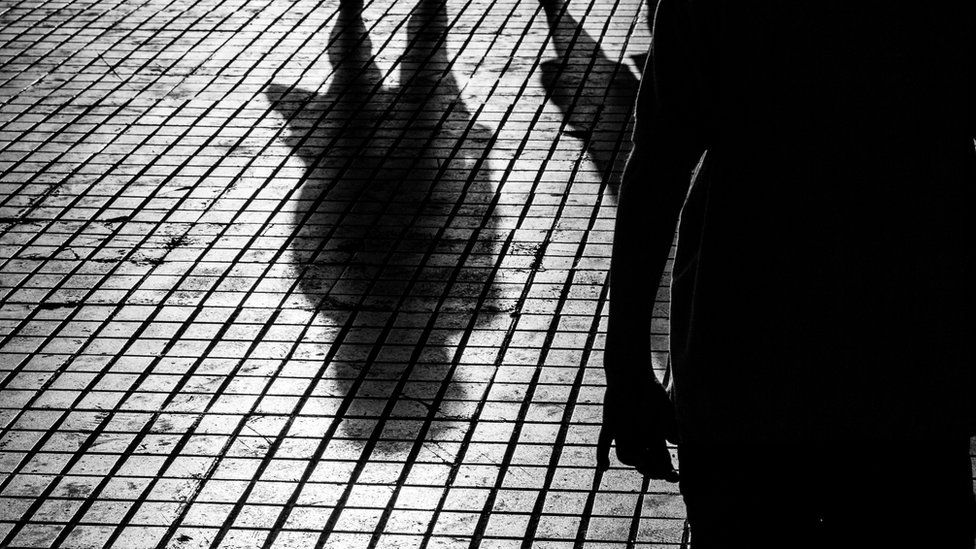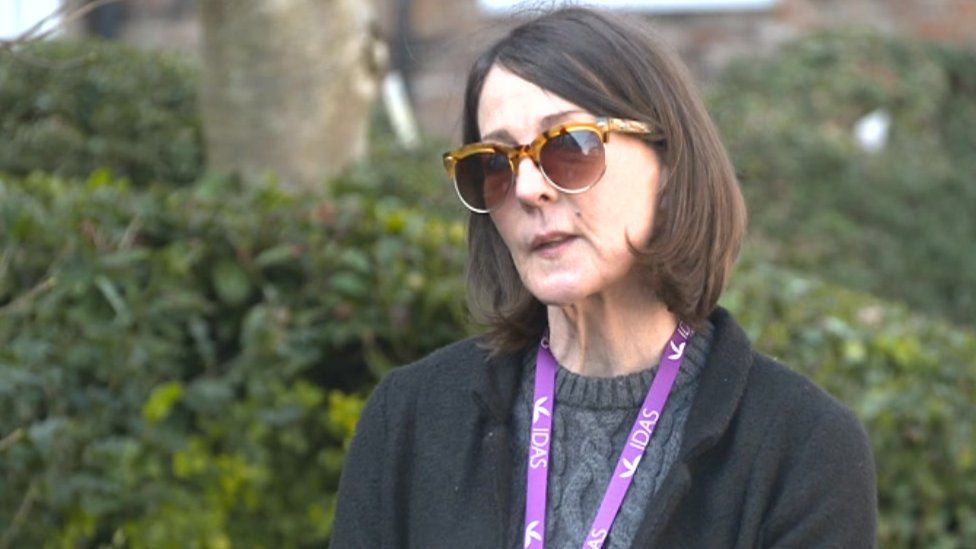Restrictions on movement and a rise in cyber-stalking fuel a surge of calls to a national helpline.

image copyrightGetty Images/Faba-Photography
Stalking victims say they feel like “sitting ducks” in lockdown, according to a charity which has seen a surge in calls for help.
A “substantial rise” in cyber-stalking has fuelled the rise, according to the Suzy Lamplugh Trust.
The charity also blamed people being unable to vary their routines due to restrictions on movement.
It said calls to its National Stalking Helpline were up by almost 10% since March 2020.
The trust – set up to support victims of stalking following the 1986 disappearance of estate agent Suzy Lamplugh – said it had received nearly 20,000 calls in the past 12 months.
Chief Executive Suky Bhaker said the impact of lockdown on victims had been “tremendous”.
“They have explained to us they feel like sitting ducks, waiting for an incident to occur as they’re not able to do normal things that they might do every day like varying their routines,” she said.
Despite the restrictions on movement, physical contact has not stopped, she said, with some perpetrators “using their excuse for daily exercise to loiter outside victim’s homes”.
She said all calls to the helpline also involved some element of cyber-stalking.

image copyrightSuzy Lamplugh Trust
Insp Clare Crossan, of North Yorkshire Police, said devices such as video doorbells and smart speakers were being exploited, and “perpetrators can be quite inventive with how they stalk their victims”.
“It’s not the image you might have of someone following you down the street. It’s ascertaining where people are online, where they’re checking into.
“If that’s the means by which the stalker is tracing and contacting you then it can feel like there’s no escape from it.”
Insp Crossan is part of the force’s dedicated anti-stalking unit, set up after it was made a specific criminal offence in England and Wales in 2012.
According to the 2020 crime survey for England and Wales, almost one in 20 women and almost one in 50 men aged 16 or over had experienced some form of stalking in the past year.
‘Crippled by anxiety’
Becky – not her real name – from North Yorkshire, was stalked for a year-and-a-half by her ex-partner, who seemed to know where to find her at all times.
“I just kept seeing him everywhere I went, wherever it was,” she said.
“If I was driving on the road he would nearly always be coming in the opposite direction, if I left the gym he would be outside, driving past.”
She only discovered how when a mechanic found a tracking device fitted to her car.
“I’m never somebody that’s really suffered from anxiety, but it crippled me at times,” she said.
“You’re just always looking over your shoulder [and] you don’t leave that behind even when it’s been discovered.”
Her ex was recently jailed for two-and-a-half years after he pleaded guilty to stalking.

Evie Duarte, from the Independent Domestic Abuse Service, which helps people affected by domestic abuse, sexual violence and stalking, said it was important to raise awareness from an early age.
“People do not always recognise that some of the things they are experiencing are stalking,” she said.
“It might start off that if feels quite nice that someone is being really attentive, but then it comes to a point where it can be quite frightening.”
If you’re affected by the themes discussed in this article you can find more information from the National Stalking Helpline.

Follow BBC Yorkshire on Facebook, Twitter and Instagram. Send your story ideas to yorkslincs.news@bbc.co.uk or send video here.
The BBC is not responsible for the content of external sites.